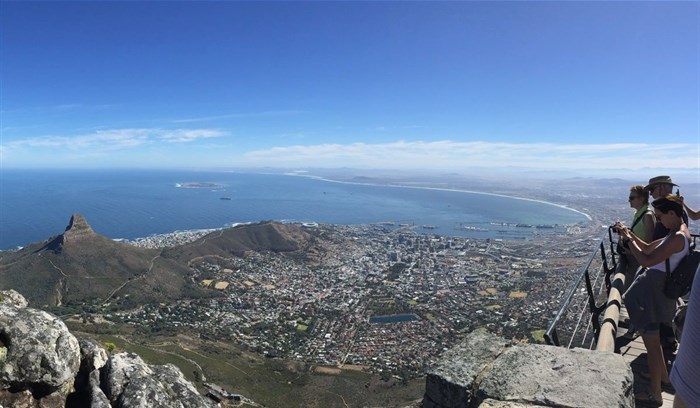
According to Rishabh Thapar, HVS Africa associate director, the local tourism industry suffered a severe blow in terms of declining occupancy and visitation, and that if marketed correctly as a sustainable destination, the industry can once again get back on track for the unprecedented tourist arrivals that the city deserves.
Thapar says that although Day Zero has been pushed out to 2020 (or potentially ‘never’) in light of the city’s laudable efforts in changing their lifestyle and focusing on water conservation in all aspects of their day-to-day living – the effort needs to be continued.
"It was heartening to see industries, buildings, farmers, hoteliers, each and every citizen coming together for a common cause and making an effort to reduce water consumption. Just to give some perspective, Cape Town has reduced its water consumption by 60% down to daily consumption levels of as low as 500-550 million litres per day – a reduction of over 50% from the 1.2 billion litres per day mark recorded just three years ago."
Cape Town is one amongst a host of cities around the world that faces water issues and we may have learnt our lesson earlier than others and can now be used as a global benchmark.
The industry took to educating its guests on the benefits of conserving water, and in some cases, rewarded guests for reducing their water consumption. There was very little to zero negative commentary from visiting guests and hotels were still able to create memorable moments despite the negative global publicity Cape Town was getting. "The truth is that Cape Town is out of the water crisis and is awaiting national government to lift the restrictions currently in place," says Thapar.
HVS Africa managing partner, Tim Smith added: "These efforts will continue, and visitors will need to be continuously educated on the issue. Tourists use a fraction of the water consumed in the city and with so many places to explore in and around Cape Town, from the mountains and beaches to picturesque vineyards and ever-increasing township tourism interest, who has time for a long shower anyway?"
With the efforts of the city, together with some blessed rainfall, the dam levels feeding Cape Town are back up to almost 50% (as of 9 July 2018) and rising with healthy rainfall predicted throughout the rest of the winter months. "While Capetonians are cautiously optimistic, the frightening experience over the last year has left citizens environmentally conscious, water-wise and fully equipped to handle the new lifestyle change," explains Thapar.
"For example, when travelling internationally, I would usually enjoy a longer shower, as a relief to my 30-second shower routine. However, six months later, having realised the impact of conservation and adjusting to a more water-wise routine, I feel no need to have a long shower when travelling abroad."
"I feel Cape Town can not only claim its fame for being resilient against the drought and becoming a water-wise city, but its citizens and visitors can now be ambassadors of sustainable tourism when they travel internationally. Cape Town is one amongst a host of cities around the world that faces water issues and we may have learnt our lesson earlier than others and can now be used as a global benchmark to others not wanting to go through what Cape Town did.
"These routines now need to be further adopted by all businesses and industries in the region should we want to ensure a drought-free future. We look forward to welcoming the water-wise global travellers to the wonders of Cape Town and the Western Cape," concludes Thapar.